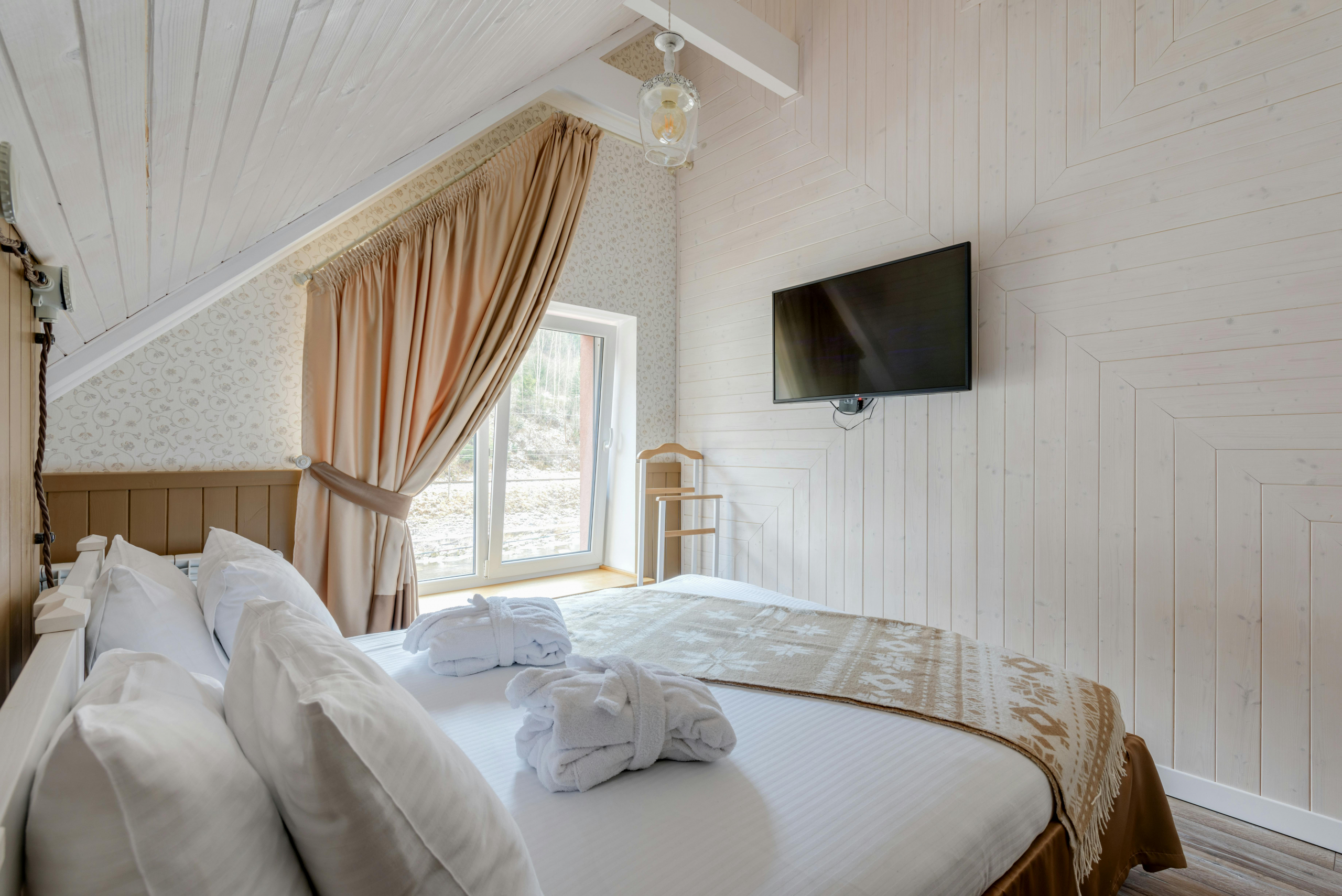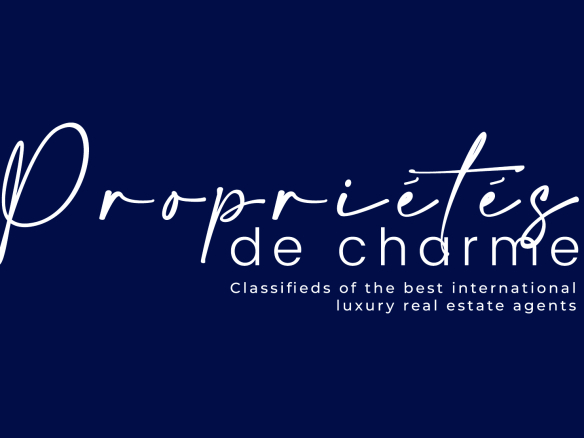Bed and Breakfast in France: Regulations, Taxation, Obligations and Perspectives
Find out everything you need to know about B&Bs in France: strict regulations, tax and social obligations, as well as new perspectives in the sector.
B&Bs in France are an iconic form of accommodation, allowing travelers to enjoy a more authentic and friendly experience. However, although they are often perceived as a warmer and more intimate alternative to traditional hotels, their operation is strictly governed by precise regulations. Between capacity limitations, service obligations, tax and social rules, numerous criteria must be respected to offer this service legally. This article explores these requirements and current issues in the sector in detail.
1. Bed and Breakfast in France: What are they? 🏡
Bed and breakfasts are accommodations offered by individuals who welcome travelers for one or more nights, in an intimate and often more personalized setting than that of a hotel. According to French legislation, guest rooms are distinguished from traditional hotels by their limited number of rooms and by the nature of the services provided. The goal is to create a more personal experience, where owners play an active role in welcoming and comforting guests.
Bed and breakfast accommodation generally includes breakfast service, as well as rooms offering some comfort and privacy. These establishments can be located in urban, rural, rural, mountain, or near the sea areas.
2. Specific Obligations for Guest Rooms 📝
2.1. Limitation on the Number of Rooms 🚪
One of the main regulations governing guest rooms in France is the limitation on the number of rooms offered. An owner cannot offer more than five rooms , and the total capacity is limited to 15 people . This restriction is imposed to ensure that the establishment maintains a family and intimate character, and that it does not turn into a hotel. The aim is to maintain a warm atmosphere and offer a quality experience rather than a large-scale commercial approach.
If an owner wants to offer a larger number of rooms or accommodate more than 15 people, they must comply with other types of regulations, such as those governing hotels or lodges.
2.2. Obligatory Services 🍽️
Bed and breakfasts must offer minimum services to guarantee a quality of welcome that meets travelers' expectations. Among the mandatory services, we find:
- Breakfast : Breakfast is a mandatory service for any guest room. It must be included in the price of the night and must be served on site. It usually includes local products, bread, jams, hot drinks and sometimes homemade products. Breakfast is often an opportunity for guests to chat with the owner and receive advice on activities to do in the area.
- Household linen : Household linen (sheets, bath towels, etc.) must be provided in the rooms. This linen must be of good quality and changed regularly. Clean and well-maintained accommodation is a fundamental requirement to ensure guest satisfaction and meet health standards.
- Housekeeping : Daily room maintenance is an obligation. Cleaning must be carried out regularly to ensure a clean and pleasant environment for guests. This cleaning must respect hygiene and safety standards.
2.3. The Role of the Owner 🤝
One of the most distinctive aspects of bed and breakfasts is the active role the owner plays in welcoming guests. Unlike a hotel where interactions with staff may be limited, in a B&B the owner must be present to welcome guests, provide them with information about the house's services, as well as activities and sites to visit in the region.
The owner plays a key role in the overall guest experience, and it is this human dimension that sets B&Bs apart from other forms of accommodation. In addition, an owner must guarantee his guests a relationship of trust and offer a friendly and relaxed atmosphere.
3. Taxation of Bed and Breakfast 💰
3.1. Tax Obligations 📜
Income generated from the rental of guest rooms is subject to tax obligations. Depending on the income generated, the owner must choose between several tax regimes:
- The Micro-BIC regime : This regime is applicable when the annual revenue from guest rooms does not exceed a threshold set at €77,700 (in 2024). This scheme is simplified and allows you to benefit from a flat-rate reduction of 50% on income. In other words, only 50% of revenue will be subject to tax, which can be advantageous for small farmers.
- The real tax regime : If revenues exceed this threshold, the owner must opt for the real tax regime. In this case, he will have to declare all of his income and will be able to deduct certain professional expenses (such as room maintenance, repairs, or investments linked to accommodation).
Owners must also pay certain taxes, such as the tourist tax which is collected for the benefit of local authorities. The territorial economic contribution (CET) may also be applicable in certain municipalities.
3.2. Social Obligations 👥
If the income generated by the activity of guest rooms exceeds 13% of the annual social security ceiling , the owner will have to pay social security contributions. These contributions are due to the self-employed workers’ scheme (TNS). In addition, people carrying out this activity professionally must register with the Trade and Companies Register (RCS).
4. Guest Rooms: Challenges and Perspectives 📊
4.1. The Evolution of the Sector 📈
The bed and breakfast industry has seen rapid evolution in recent years, largely due to the rise of online rental platforms like Airbnb and Booking.com . These platforms have facilitated access to millions of travelers around the world, allowing B&B owners to reach a much wider audience than before.
However, this rapid growth has also introduced new challenges, particularly around regulation and competition. The authorities have had to strengthen safety and hygiene rules and put in place controls to ensure that guest rooms comply with current standards.
4.2. Homestay Rooms and Gîtes 🏠
It is important to understand the difference between guest rooms, homestays and lodges:
- Homestay rooms : If an owner offers more than five rooms or exceeds the capacity of 15 people, the establishment can no longer be designated as a bed and breakfast. It can be described as “homestay” or “guest house”, depending on the nature of the services offered.
- Gîtes : Gîtes are holiday accommodation which can be rented for a longer period. Although less strictly regulated than guest rooms, they must meet the standards of seasonal furnished rentals.
4.3. The New Rules for Furnished Tourist Rentals 🏖️
The tax reforms introduced by the 2024 finance law have tightened the tax rules for owners of furnished tourist accommodation. The Micro-BIC has been lowered, no longer applying for annual income above €15,000 . This reform has direct implications for guest houses which, even if they still benefit from certain tax advantages, must adapt to these new requirements.
4.4. The Market in 2024: An Evolution towards More Professionalization 🏅
With increased competition and rising demand for quality accommodation, the bed and breakfast market in France is becoming more and more professional. Owners are investing more in the renovation of their properties, the implementation of additional services (spas, swimming pools, gastronomic offers), and the digitalization of their services to meet the expectations of modern customers.
5. Conclusion 🔚
B&Bs in France are subject to strict regulations which aim to guarantee quality accommodation and an authentic experience for travelers. However, this regulation also involves tax and social obligations with which owners must comply. The bed and breakfast sector is evolving, with prospects of professionalization and adaptation to new consumption practices. For owners wishing to engage in this activity, it is crucial to understand and respect these rules in order to avoid any problematic situation with the authorities.


 Why invest in Luxury B&Bs and Gîtes?
Why invest in Luxury B&Bs and Gîtes?